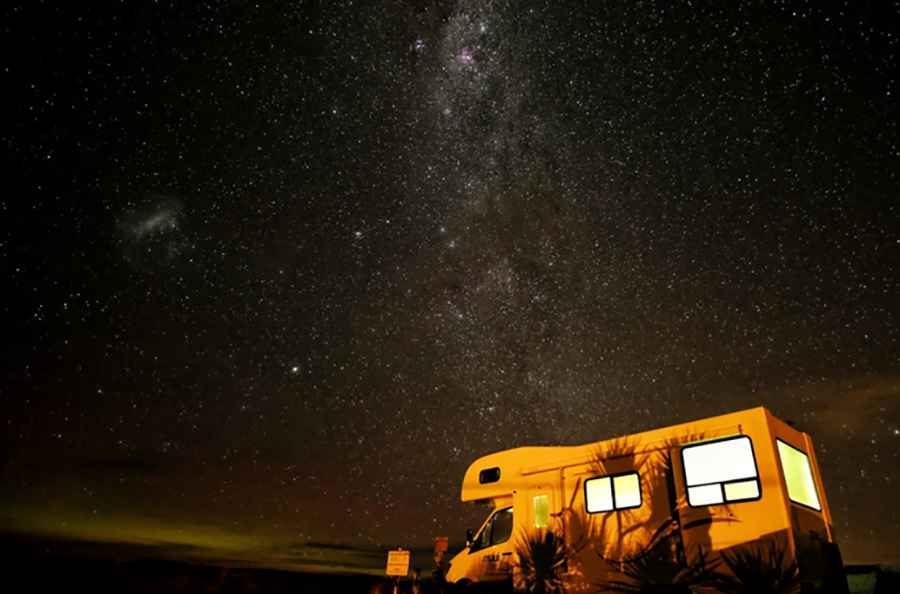How to Stay Safe When Living in a Motorhome in the USA
The rise in RV ownership, with over 11 million Americans operating mobile living units, has transformed the landscape of long-distance travel. However, transitioning to full-time or extended motorhome living involves significant logistical challenges. Beyond the comfort of the vehicle, operators must master security protocols, situational awareness, and emergency preparedness. Navigating the USA in a motorhome requires a professional mindset to mitigate risks ranging from mechanical failure in isolated zones to security breaches in public transits.

| RV Operational Safety: Risk Management | |
|---|---|
| Communication | Route logging and scheduled check-ins via satellite/cellular |
| Site Selection | Reputable hubs (KOA, Federal lands) vs. high-risk zones |
| Perimeter Security | Locked hatches, window shielding, and key proximity |
| Mechanical Audit | Continuous monitoring of vehicle dynamics and integrity |
Why is route logging essential for long-distance RV transits?
In an environment where you may travel hundreds of miles daily through varied terrains, a communication protocol is vital. Professional RVers maintain a flight-plan style log, sharing intended routes and estimated arrival times (ETA) with a trusted contact. This redundancy ensures that in the event of a mechanical failure or a medical emergency in a "dead zone," your last known coordinates are recorded. Utilizing satellite messengers (like Garmin inReach) is highly recommended for transits through remote Western states where cellular coverage is intermittent.
How do you evaluate campsite security and operational risk?
"Going with the flow" is a high-risk strategy for large vehicle operators. Proactive research is mandatory to avoid areas prone to security issues or infrastructure limitations. Utilizing platforms like Recreation.gov for federal lands or Reserve America for state parks ensures that you are staying in regulated environments. Beyond digital ratings, professional site evaluation includes checking for cellular signal strength—critical for emergency services—and ensuring the terrain can support the vehicle's weight and leveling requirements.
What are the core tactics for maintaining situational awareness?
Situational awareness is the primary defense against external threats. When stopping at gas stations, rest areas, or trailheads, operators must perform a 360-degree assessment of the surroundings. This includes identifying exit routes and monitoring the behavior of others in the vicinity. A key tactical protocol is to keep the ignition keys in a fixed, accessible location at all times, allowing for a rapid departure ("bug-out") if the environment becomes compromised. Listening to "gut instinct" is essentially the brain processing subtle environmental red flags—ignore them at your own peril.
How should you manage campsite perimeter security after dark?
Even in reputable campgrounds, maintaining perimeter integrity is essential. Standard operating procedures include:
- Visual Shielding: Keeping all window coverings closed to prevent "casing" of the interior contents.
- Asset Concealment: Storing high-value items (electronics, currency) in specialized onboard safes.
- Lock Discipline: Ensuring all exterior hatches and doors are deadbolted, and never admitting unknown individuals into the unit.
- Ready-to-Move State: Keeping the driver’s seat clear of clutter and the vehicle ready for immediate startup.
What specialized medical supplies are required for full-time travelers?
Standard first-aid kits are often insufficient for the unique risks of RV living, such as prolonged sun exposure or encounters with diverse flora and fauna. A specialized RV medical kit should include high-grade antihistamines for allergic reactions, insect sting relief, splints for orthopedic injuries sustained during outdoor activities, and antiseptic wound cleansers. Maintaining a supply of essential medications and understanding the location of the nearest urgent care facility along your route is a fundamental part of staying operational.
Conclusion: The Standard of Professional RV Operation
Living in a motorhome offers unparalleled freedom, but it demands a higher standard of responsibility. By implementing rigorous safety protocols—from meticulous route planning to high-level campsite security—you protect both your assets and your life. The difference between a successful long-term adventure and a dangerous situation is often the degree of proactive preparation. Treat your RV as a mission-critical unit, and the roads of the USA will remain a source of endless discovery rather than a series of avoidable crises.